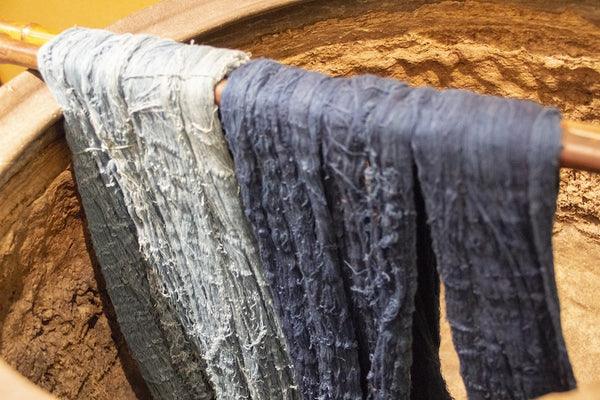Exploring the Rich Depths of China’s Denim Blue and Indigo Textiles
China's Denim The Icon of Blue Indigo
Denim, often referred to as the quintessential fabric of modern fashion, has undergone significant transformations over the centuries. China, as one of the largest producers of this versatile fabric, has embraced denim in ways that highlight its cultural significance while interweaving traditional techniques with contemporary trends. Among the various shades of denim, blue indigo holds a special place as the most iconic and emblematic of the fabric.
Historically, indigo dyeing dates back thousands of years and has deep roots in Chinese culture. Ancient records suggest that the practice of dyeing fabric with indigo can be traced back to the Han Dynasty (206 BCE – 220 CE). The use of indigo, extracted from the Indigofera plant, reflects a rich heritage of artisanal skills passed down through generations. In many rural areas of China, local artisans still employ natural dyeing methods, producing a range of stunning blue shades that are celebrated for their depth and complexity.
The emergence of denim as a global fashion staple in the 19th century transformed the landscape of textiles, and China quickly adapted to this change. By the latter half of the 20th century, the nation had established itself as a major player in denim production. Factories in provinces such as Guangdong and Jiangsu began to churn out vast quantities of denim fabric, primarily for both domestic consumption and international markets. This expansion marked a pivotal point in China’s industrial evolution and its integration into the global economy.
China's Denim The Icon of Blue Indigo
Chinese designers have also begun to reimagine denim fashion in innovative ways. The integration of traditional Chinese elements, such as intricate embroidery or cultural motifs, into denim designs offers a fresh perspective on this beloved fabric. For instance, collections showcasing the great wall of China, dragons, or lotus flowers embroidered on indigo denim not only celebrate the fabric's heritage but also create a dialogue between past and present.
china denim blue indigo

Furthermore, the rise of sustainability and ethical fashion has led to a reevaluation of denim production practices in China. As consumers become increasingly conscious of the environmental impact of their clothing, many brands are pioneering eco-friendlier methods of producing and dyeing denim. Techniques such as waterless dyeing and organic cotton cultivation are gaining traction, promoting a more sustainable approach to the once heavily polluting industry.
The popularity of vintage-style denim has also seen a resurgence in recent years, with many seeking out authentic, pre-owned pieces that come with their own stories. This trend reflects a broader cultural movement towards valuing quality and craftsmanship over fast fashion. In this context, blue indigo denim embodies a sense of nostalgia and individuality, as each item carries a unique history and character.
Moreover, the global appeal of blue indigo denim has fostered cultural exchanges, with Chinese denim brands gaining recognition on international runways and marketplaces. This cross-cultural interaction not only elevates Chinese artisanship but also serves as a platform for promoting understanding and appreciation of diverse fashion narratives.
As we look to the future, the role of blue indigo denim in China's textile industry will undoubtedly continue to evolve. With advancements in technology, a focus on sustainable practices, and a commitment to cultural authenticity, China is poised to lead the way in shaping the future of denim. The journey of blue indigo from ancient traditions to contemporary trends exemplifies how a single fabric can bridge gaps between cultures, generations, and ideals, forever securing its place as a timeless symbol of style.
In conclusion, the story of China's denim—especially blue indigo—is a rich tapestry woven with history, culture, and innovation. It encapsulates the spirit of adaptation and transformation, reminding us that while fashion may change, the love for quality and craftsmanship remains constant. Whether worn as functional attire or high-fashion art, blue indigo denim continues to resonate, making it an enduring icon in the world of textiles.
-
The Timeless Art of Denim Indigo Dye
NewsJul.01,2025
-
The Rise of Sulfur Dyed Denim
NewsJul.01,2025
-
The Rich Revival of the Best Indigo Dye
NewsJul.01,2025
-
The Enduring Strength of Sulphur Black
NewsJul.01,2025
-
The Ancient Art of Chinese Indigo Dye
NewsJul.01,2025
-
Industry Power of Indigo
NewsJul.01,2025
-
Black Sulfur is Leading the Next Wave
NewsJul.01,2025

Sulphur Black
1.Name: sulphur black; Sulfur Black; Sulphur Black 1;
2.Structure formula:
3.Molecule formula: C6H4N2O5
4.CAS No.: 1326-82-5
5.HS code: 32041911
6.Product specification:Appearance:black phosphorus flakes; black liquid

Bromo Indigo; Vat Bromo-Indigo; C.I.Vat Blue 5
1.Name: Bromo indigo; Vat bromo-indigo; C.I.Vat blue 5;
2.Structure formula:
3.Molecule formula: C16H6Br4N2O2
4.CAS No.: 2475-31-2
5.HS code: 3204151000 6.Major usage and instruction: Be mainly used to dye cotton fabrics.

Indigo Blue Vat Blue
1.Name: indigo blue,vat blue 1,
2.Structure formula:
3.Molecule formula: C16H10N2O2
4.. CAS No.: 482-89-3
5.Molecule weight: 262.62
6.HS code: 3204151000
7.Major usage and instruction: Be mainly used to dye cotton fabrics.

